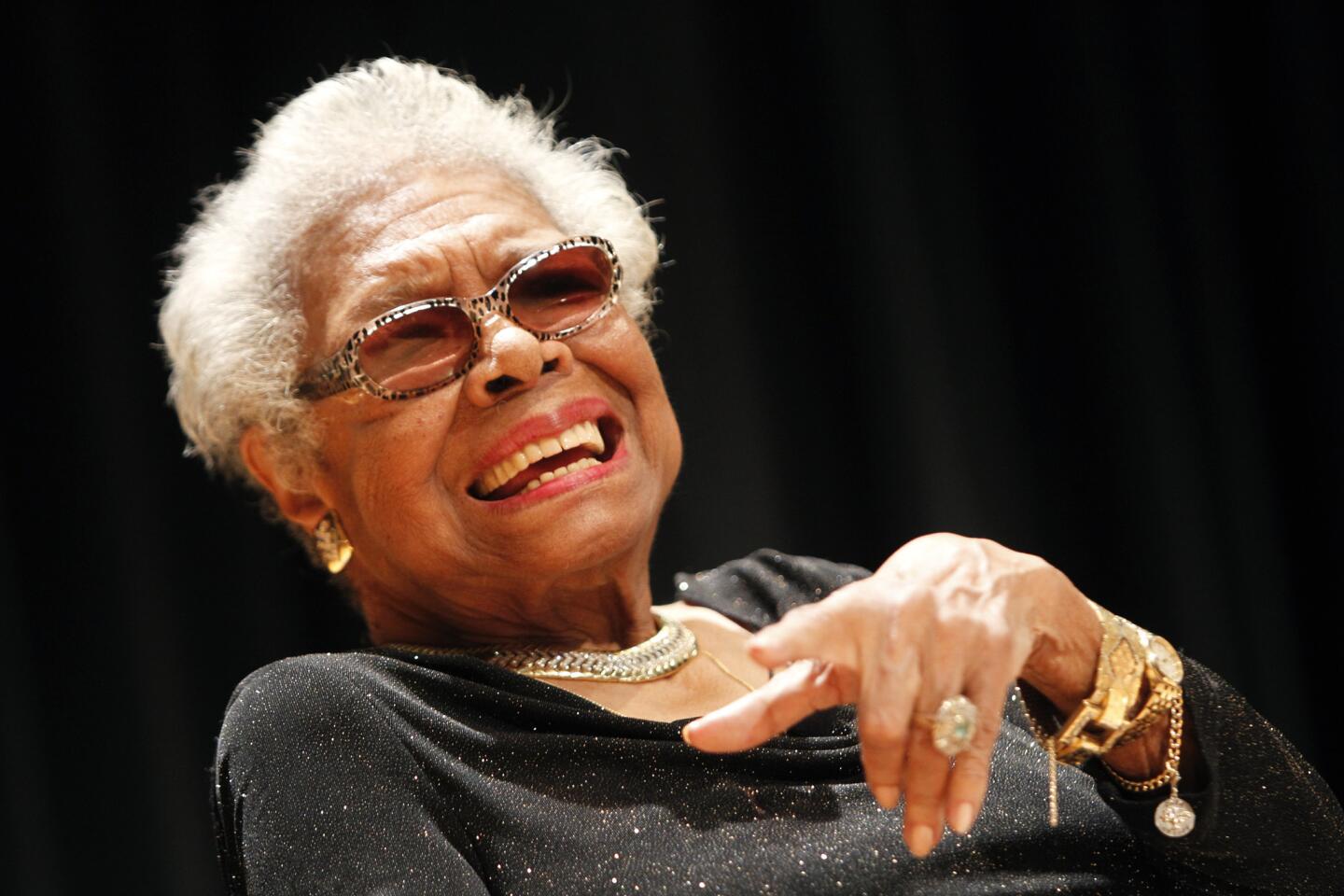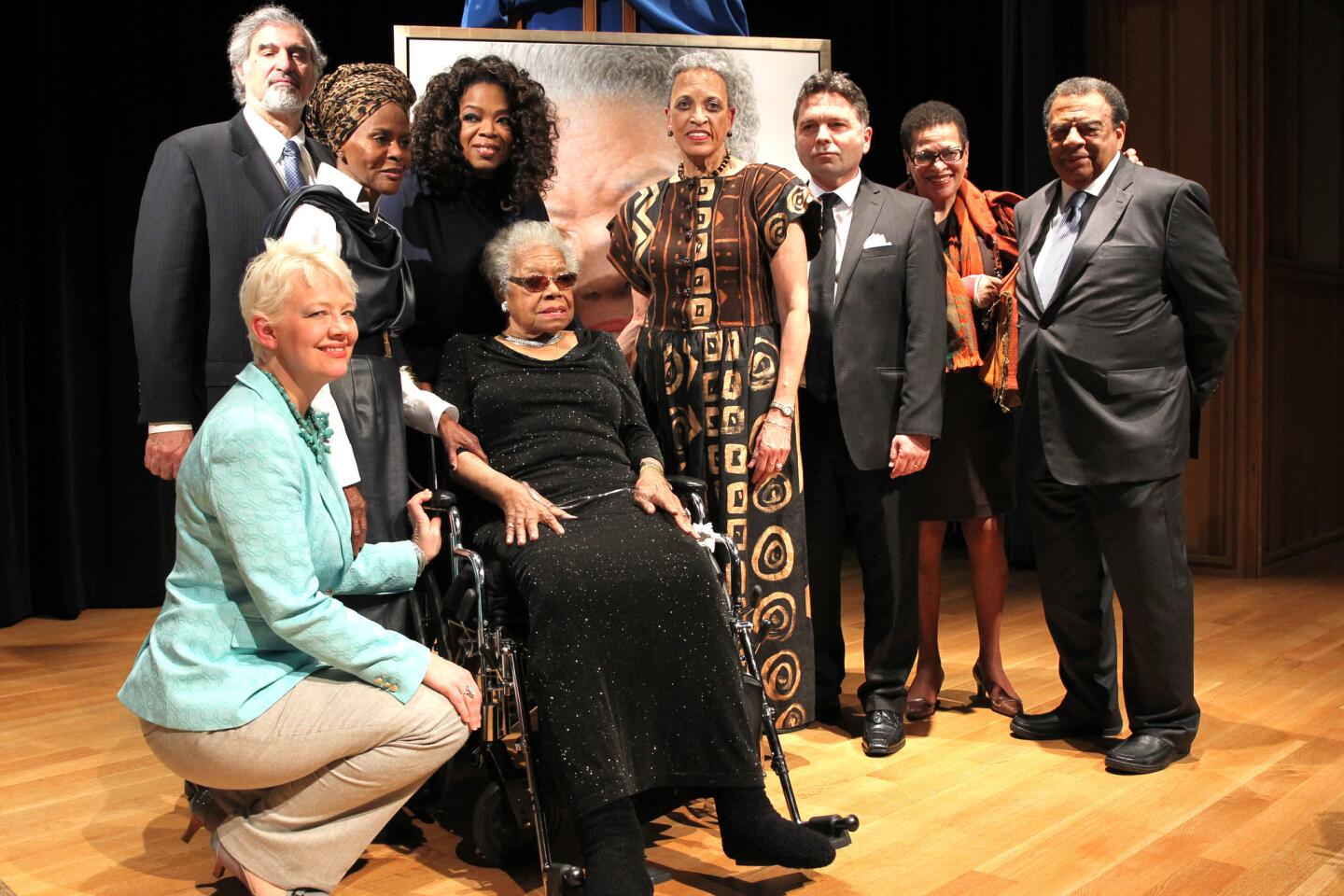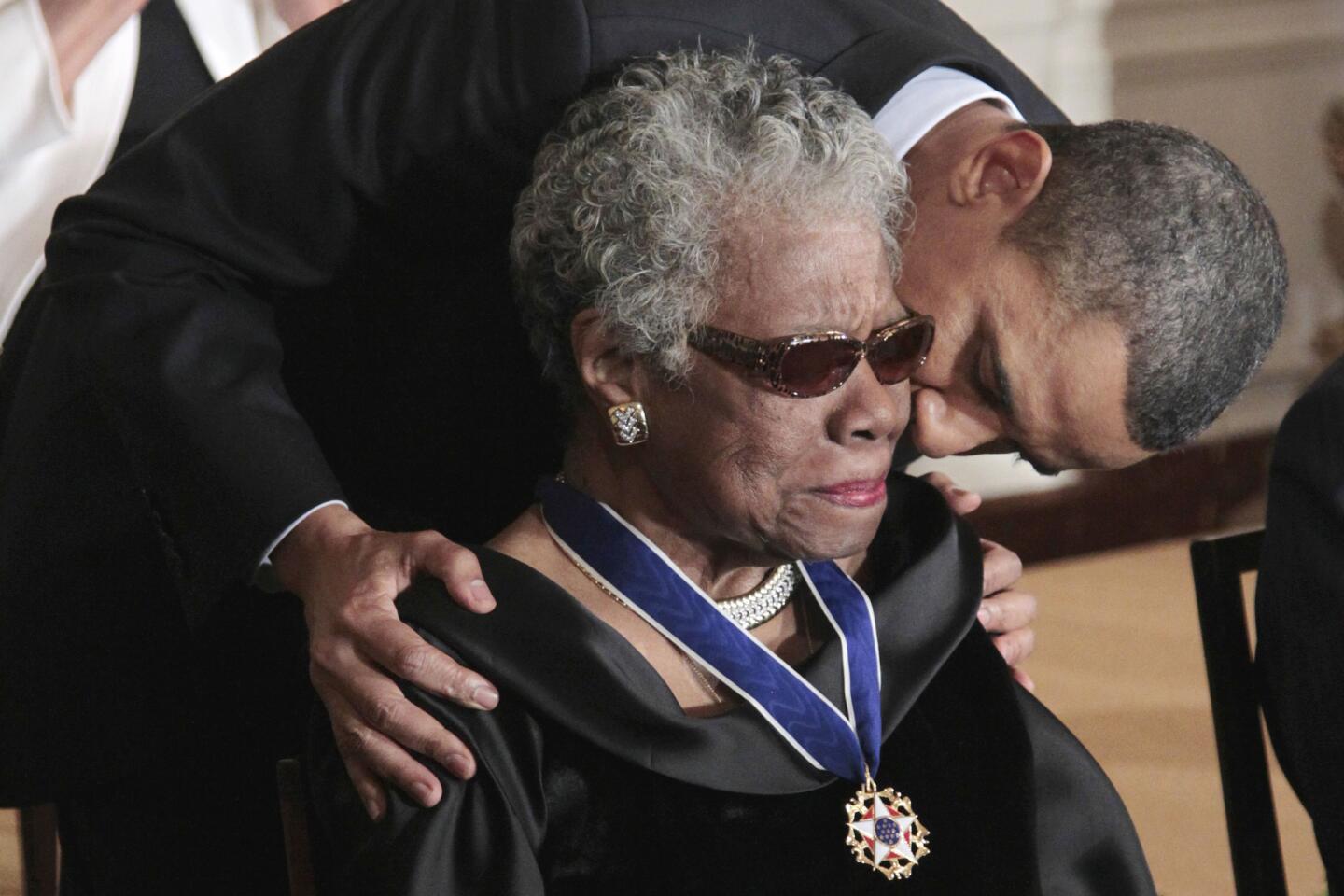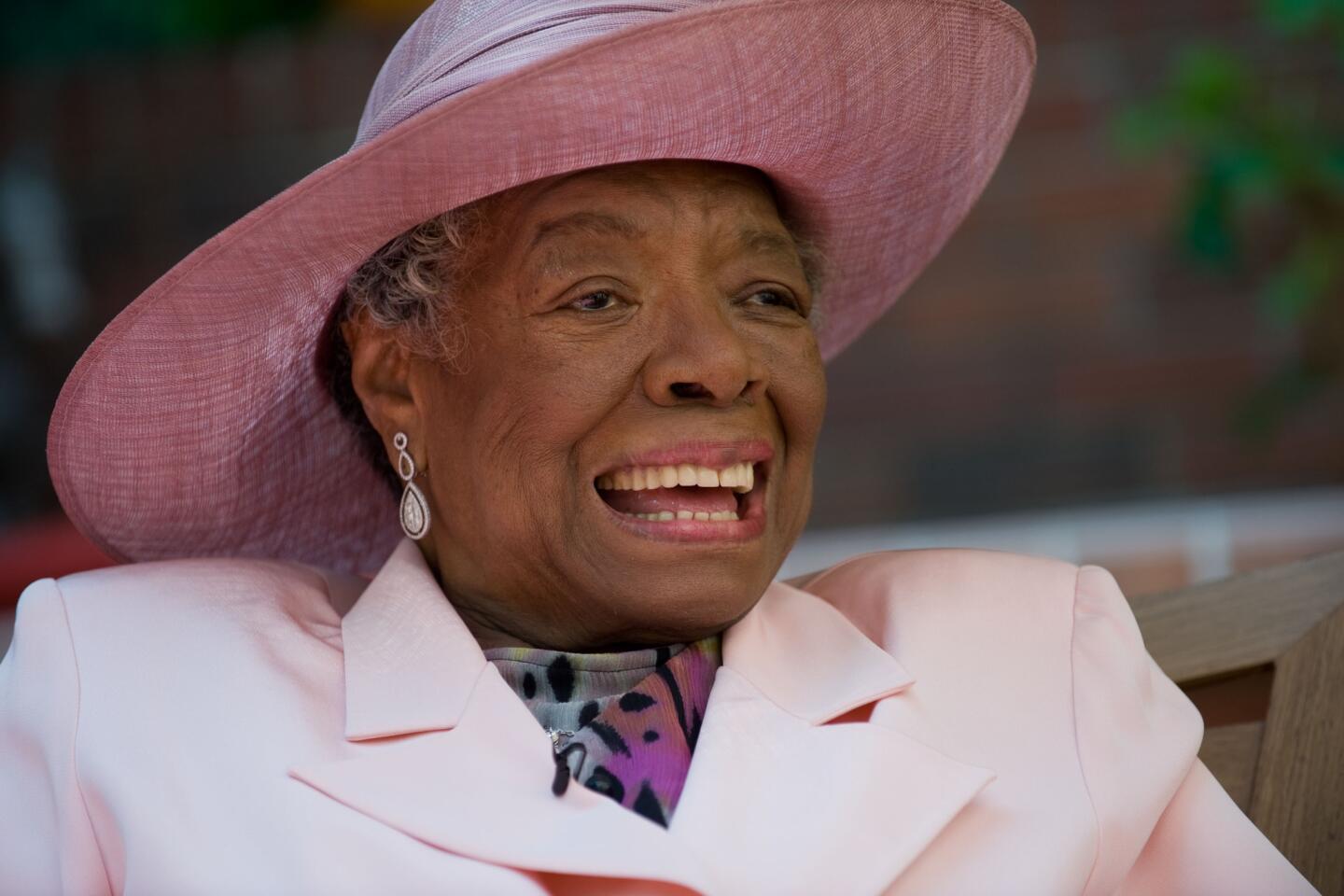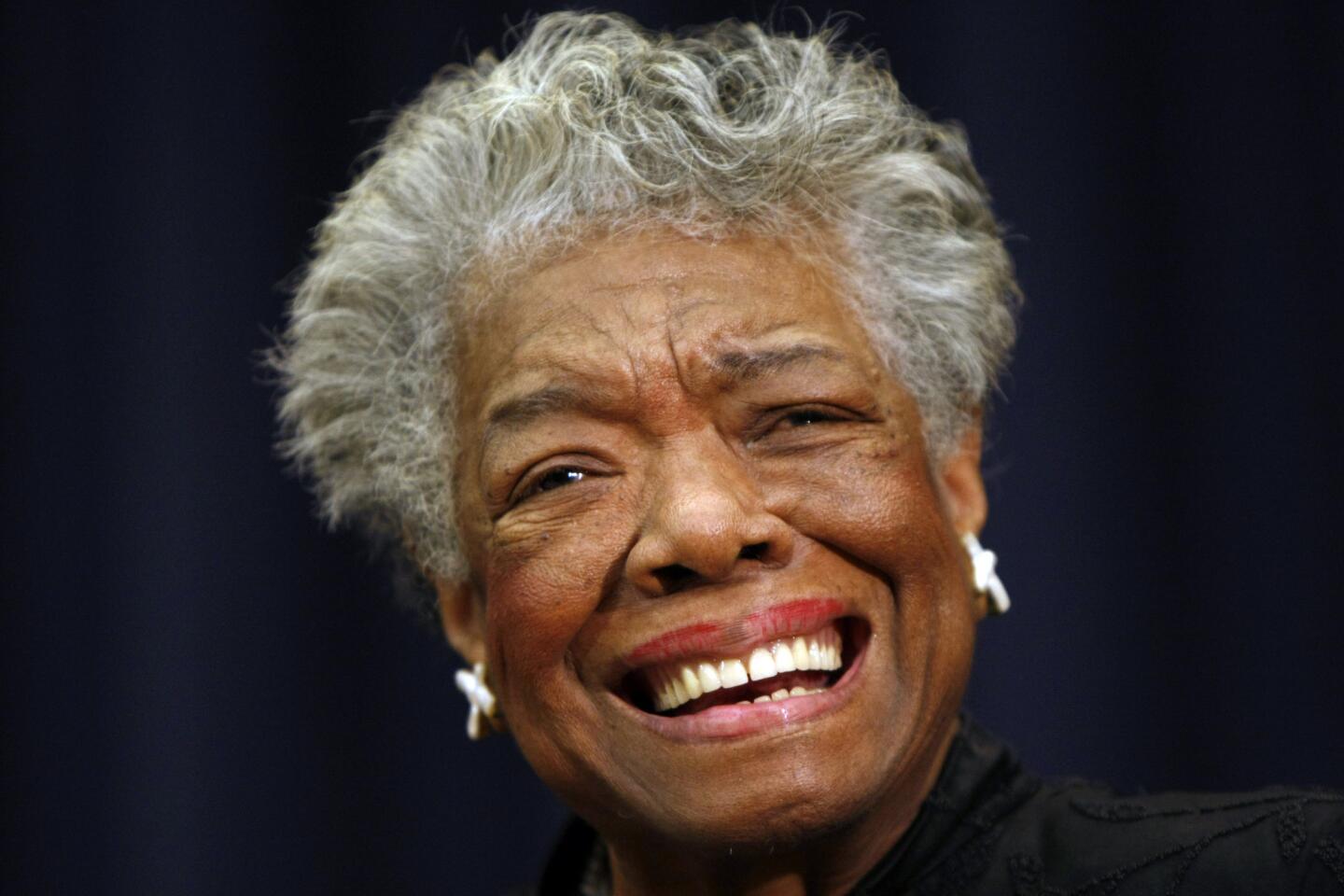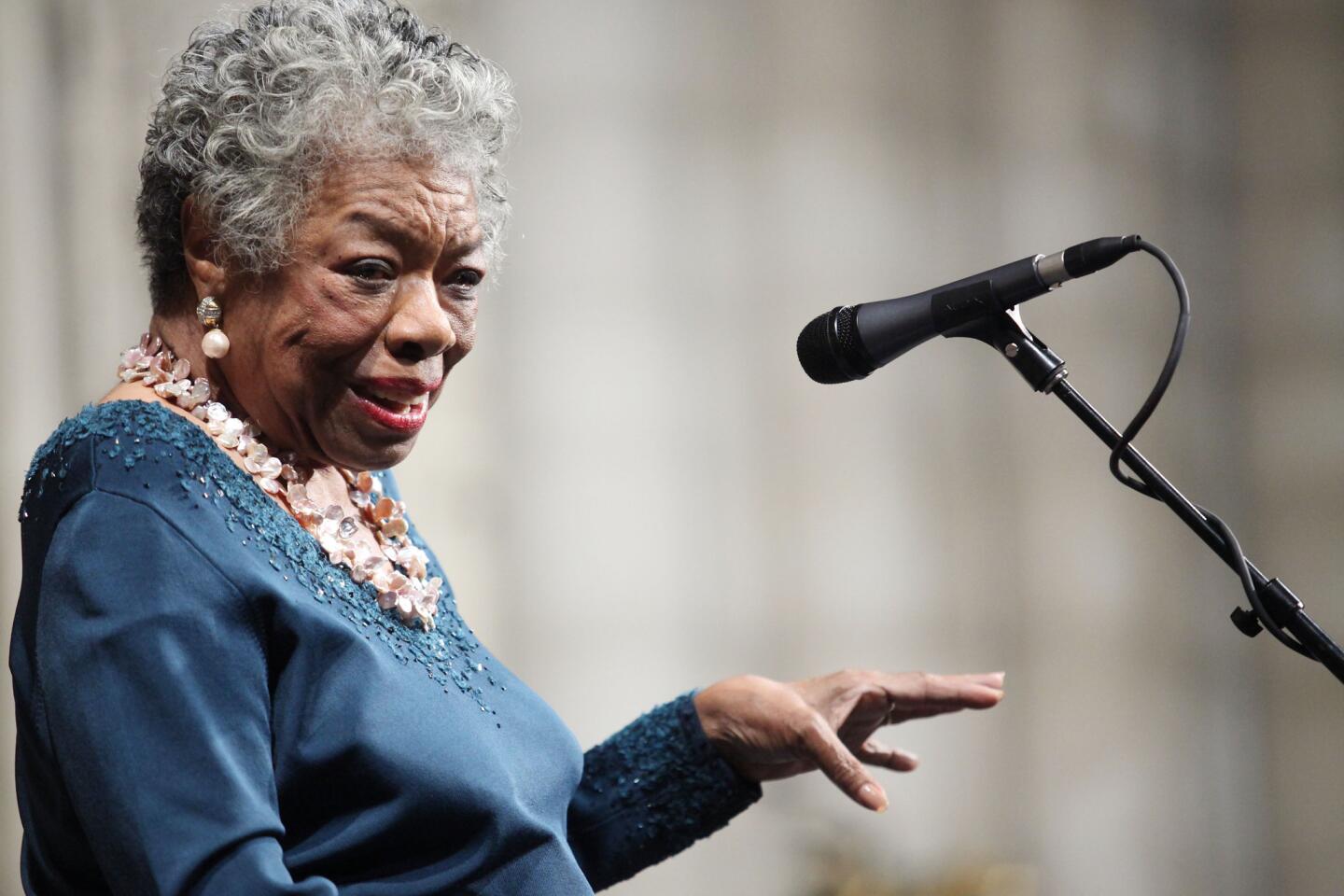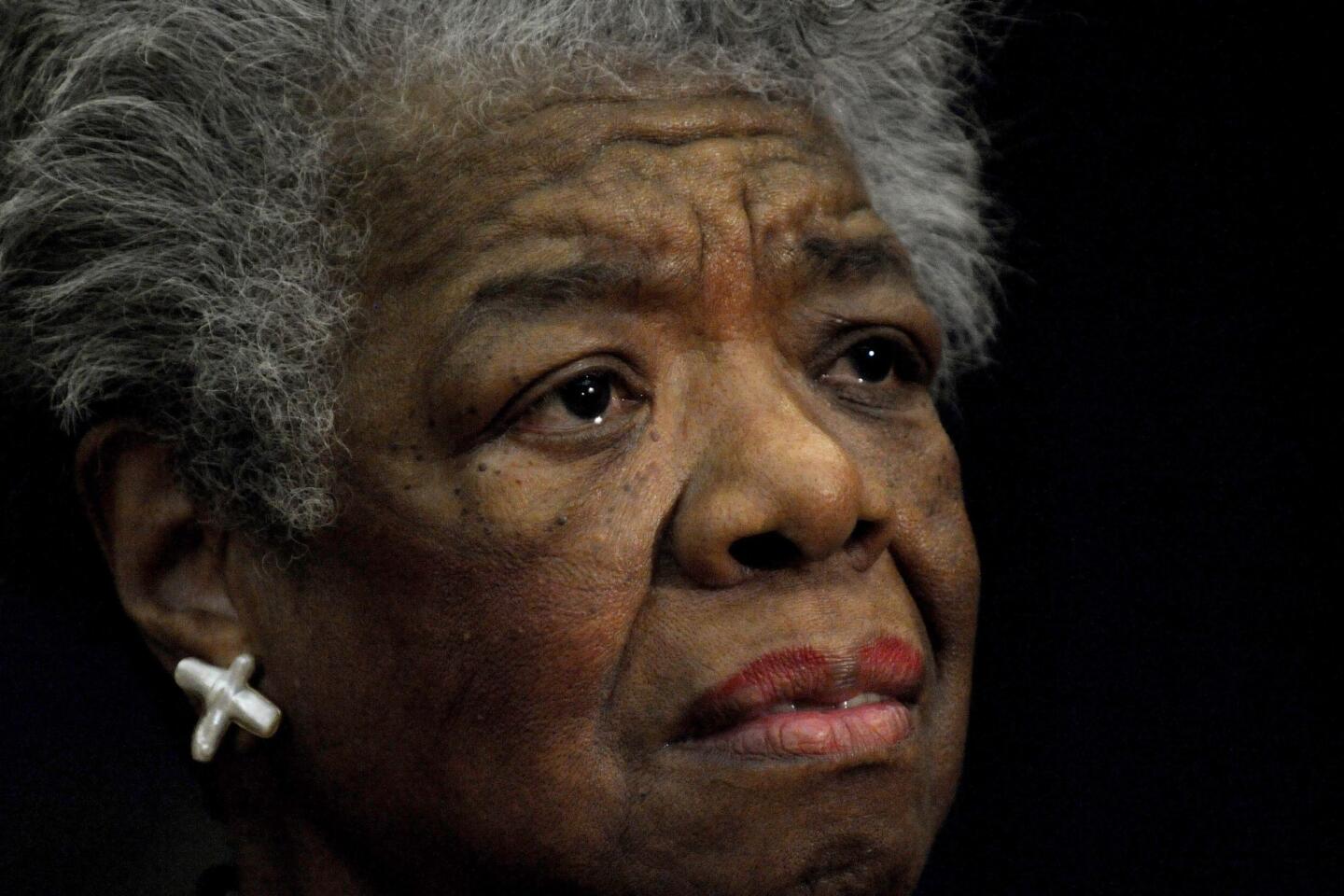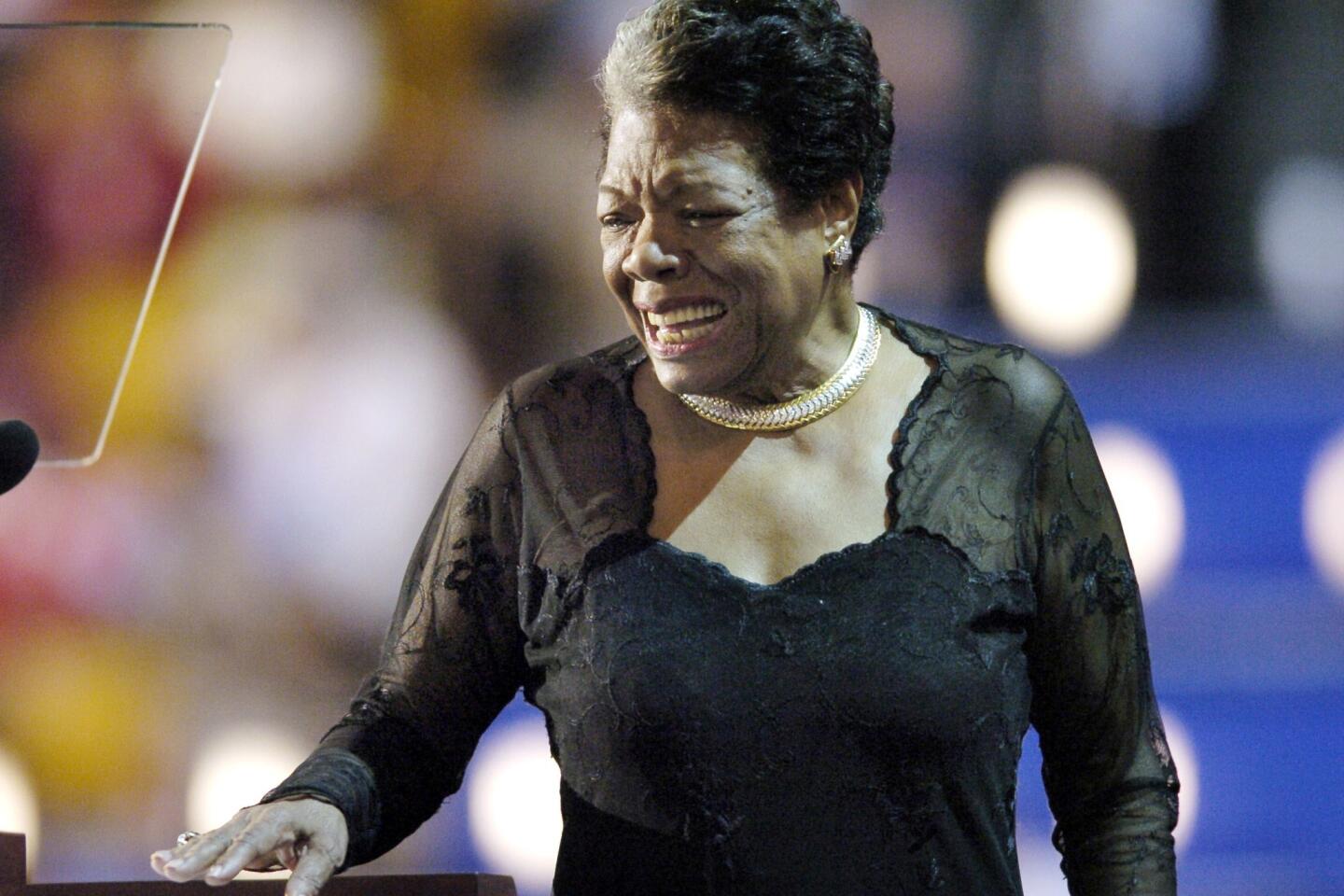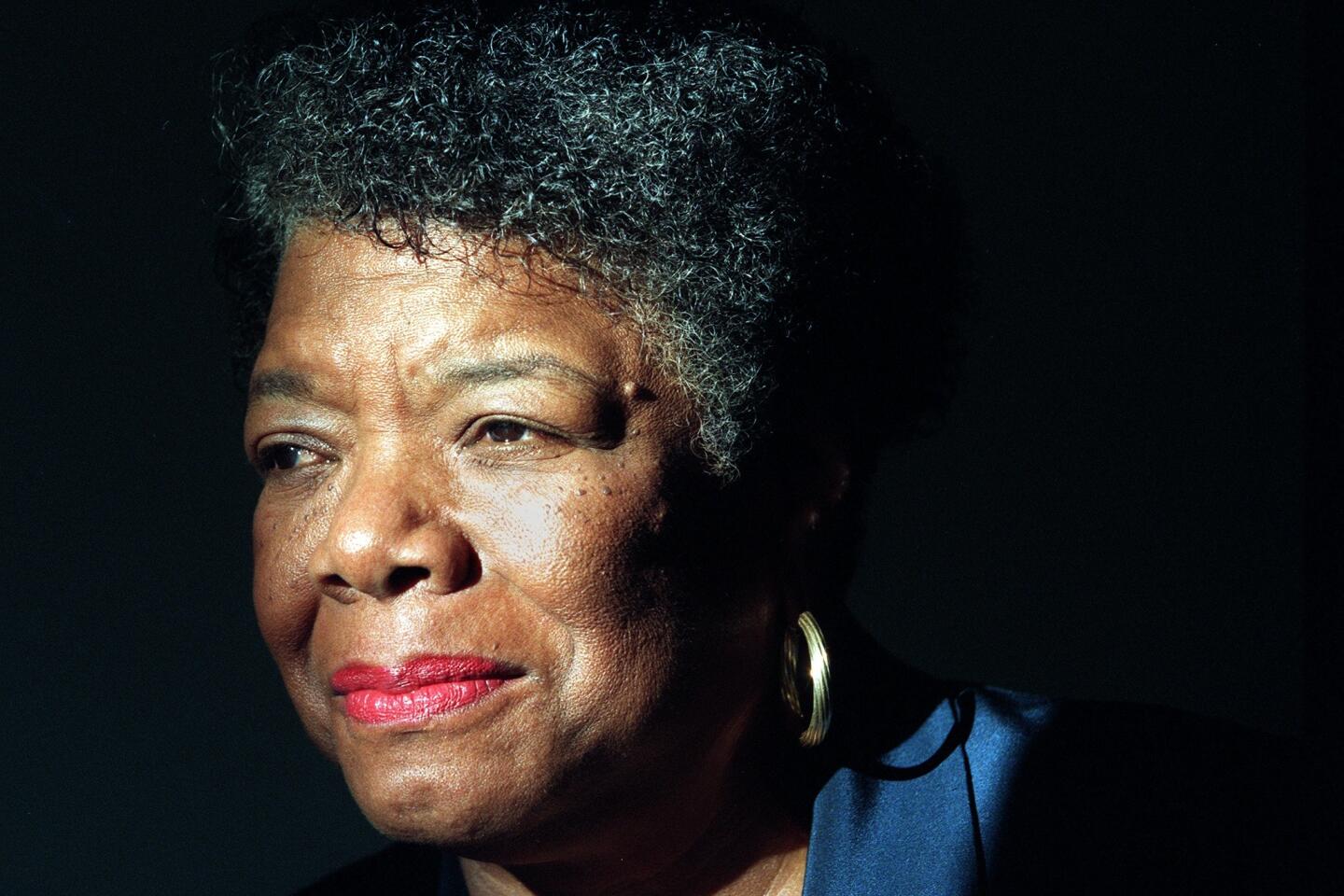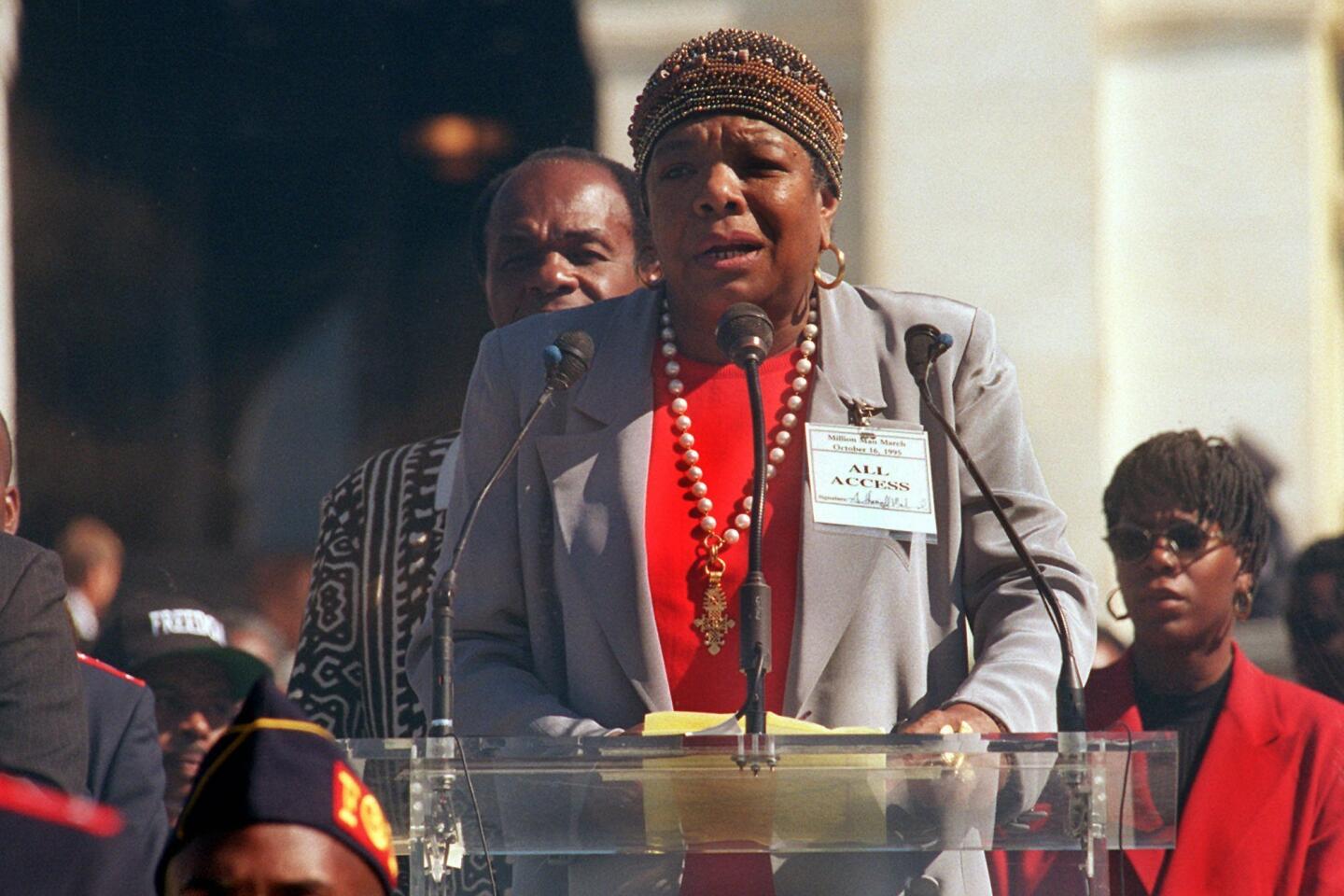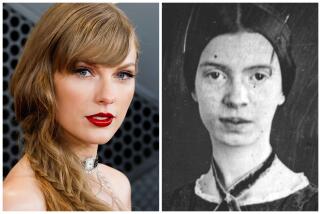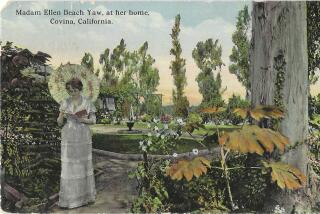When Maya Angelou was interviewed by Studs Terkel
In March 1970, Maya Angelou sat down with Studs Terkel for a radio interview about her memoir “I Know Why the Caged Bird Sings.” The story of her girlhood in Stamps, Ark., the book is an extended statement of perseverance, a paean to the dignity of all of us.
Angelou, who died Tuesday at age 86, has long been such an icon — winner of a 2011 Presidential Medal of Honor and a 2013 Literarian Award from the National Book Foundation — that it’s hard to think of her in the process of becoming, but this is just what the Terkel interview reveals.
“I am a poor pilgrim of sorrow / I’m lost in this wide world alone / No hope have I for tomorrow / I’m trying to make heaven my home,” she sings early on, recalling the spirituals and work songs that inspired her as a girl. This, she adds later, is where the inspiration for her memoir came from: “The caged bird,” she reminds us, “sings about freedom all the time, all the time, and that song is so rich and so beautiful that I knew that was the title.”
Angelou talks about her family, especially her grandmother, who used to wear a “great white apron, starched so stiff it would stand up,” and her Uncle Willie, who was handicapped in body, if not in soul. “He was a very intelligent man,” she recalls. “He read a lot. But by being physically crippled and by being crippled by the Southern prejudice … he was doubly victimized, even triply victimized because he was aware.”
Such an awareness extends to all of us, she suggests, making her story not personal so much as universal, or at least national in scope.
“Suppose the Reconstruction had worked, had been allowed to work,” she imagines. “If we look at America today, it is the most powerful nation on the planet ... it has an ethos that if I were asked to sum it up in a few words I would sum it up as yes I can. There is something wonderful about this country, even though the Reconstruction did not work. Now, suppose it had worked. It’s thrilling if you suppose that all these people were really working together and the hate was not there, the fear was not there, the bitterness, the guilt.... It’s thrilling when one thinks about that. And the reaction to the thrill, for me, is an immediate depression. I think, my God, what as a nation we have lost.”
And yet, she continues, there is no point to giving in to desperation. “The hope, the hope that lives in the breast of the black American,” she says, “is just so tremendous that it overwhelms me sometimes.”
This is the message of “I Know Why the Caged Bird Sings,” which traces Angelou’s own passage to awareness, to an identity she could call her own.
“I’m trying to say in that book you can win,” she tells Terkel late in the interview. “I’m saying it to young black children. I’m saying it to old black men and women. To middle-aged Chinese. Teenage whites. I’m saying it about the human condition, really.”
More to Read
Sign up for our Book Club newsletter
Get the latest news, events and more from the Los Angeles Times Book Club, and help us get L.A. reading and talking.
You may occasionally receive promotional content from the Los Angeles Times.
